An Issue of Race
Does the show provide representation? Yes. Does it do much beyond that? Not really.
By Sierra Emilaire, Southern Adventist University
A Netflix Original series based off the 2014 film of the same title, “Dear White People” provides a social commentary on being black in America.
The show takes place on a predominantly white ivy-league campus, Winchester, where said white people hold the social power and the minority students are left marginalized. The main character of the show, Samantha White, is a biracial Journalism major who hosts a radio show titled “Dear White People” where she (rightfully) condemns white people around campus for ignorance in their interactions with people of color.
Sam encounters comments such as “You look like Beyoncé” and “Wait, what are you?” and she is volunteered by white professors to speak on issues of slavery and race due to her “connection” to the subjects, which shows that she is seen as the token, the example to sympathize with, rather than just a normal student like the rest.
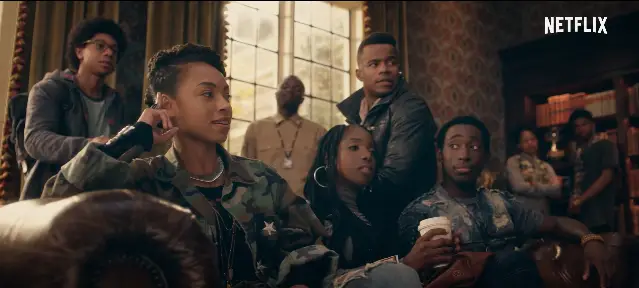
Honestly, I relate to Sam on such an intimate level that it originally clouded my perception of the show. For weeks, I battled between loving the fact that this show even exists, and being displeased with the delivery.
To be frank, I’m tired of talking about racial issues, because I feel like what needs to be said has been said. I am aware that there is an audience that isn’t hearing it, but I also don’t expect them to ever open their ears to listen. I think the average individual that is eager to know about race relations in the United States puts in the work to do so, and at this point, we need to be guided to steps toward change. “Dear White People” provokes more division, less conversation and provides almost no guidance for steps toward change.
Still, there is worth in offering representations of the experiences of minority groups in our society.
The Show Addresses Real Issues
In “Dear White People,” when predominantly white humor magazine “Pastiche” hosts a black-face party, it is soon compromised by enraged black students (rightfully so). We later find out that Sam is the one who organized the party as a social experiment. This event sets up the racial climate that dominates the remainder of the first season of the show.
Don’t think that the concept of a black-face party is so unusual, though. In today’s supposedly “post-racial” society, there have been various events in the last ten years that mirror the party portrayed in “Dear White People.” These include Penn State’s Chi Omega Mexican Party (2012), Duke University’s Kappa Sigma’s Asia Prime Party (2013), Dartmouth College’s Alpha Delta & Tri-Delta’s Bloods And Crips Party (2013) and the University Of Florida’s Beta Theta Pi’s Blackface (2012).
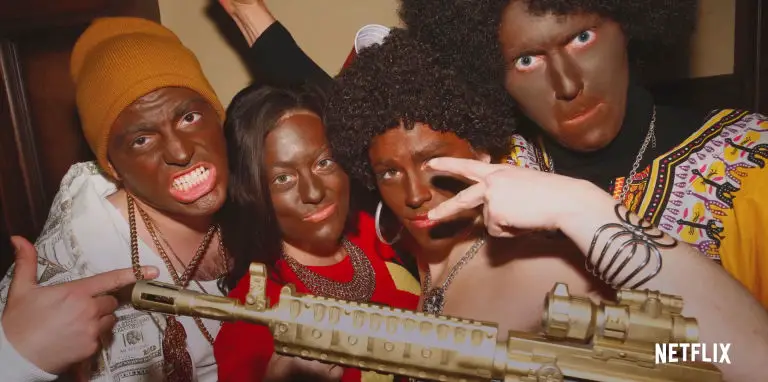
Through this scenario, the writers of the show open viewers’ eyes to the reality of a not-so-post-racial society. The “racist party” concept was used wisely and provoked not only action, but discussion. The same can’t be said for other scenarios presented in the show.
When Troy, son of the Uncle Tom and dean of students, is campaigning to be student body president, the actions of his fellow black students nearly compromise his shot at winning the election, forcing him to brownnose his way to the top. Perhaps this wasn’t an intentional analogy, but it’s so heavily focused on in the story that I can’t think it’s accidental.
Troy is also accompanied by Sam’s ex-best friend, Coco. Coco lived a tragic life before being delivered by the white savior who sponsored her through high school and has placed her at Winchester. She assimilates for survival and constantly compromises herself for the acceptance of her white counterparts, which caused the end of her friendship with Sam and their rivalry.
In Chapter Five, the characters attend a party where Reggie runs into one of his token white friends, Addison. As they are dancing and jamming to music, he hears this friend say the n-word. Reggie is bothered by this, even though they are the lyrics to the song playing, and confronts Addison about it. Addison fails to understand why it’s just not okay to say the n-word if you’re not black, even when it’s the lyrics to a song.
Eventually, things get heated and the police are called. Reggie is faced with a life-threatening situation as a police officer walks into the room, asks a few questions and assumes Reggie is to be disciplined. He points his gun at Reggie’s head, even as his friends vouch for him and ask the cop to calm down. No one gets shot, but it’s a clear representation of the thoughtless targeting of black males that has been rampant on the news in the last few years, and Reggie is left emotionally scarred.
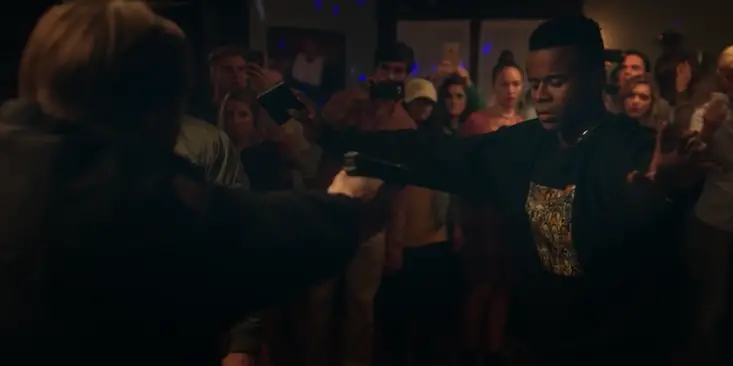
In response to Reggie’s encounter with the police, Sam and other black students on campus decide to form a protest during a scheduled town hall meeting to advocate for Reggie and denounce racial misconduct by police. They are rudely interrupted by more than one “all lives matter” protest group and, with the yells of contradictory groups trying to out-speak one another, no one is heard. Nothing is resolved. All of the actions of the characters within the show are irrational and sparked by emotion (Lionel may be the only exception to this).
These are just a few of the most important scenarios portrayed in the show, and although they are all poignant, when placed together, they seem to drown each other out. In addition, with only thirty minutes dedicated to each episode, the writers make room for emotional build-up and action, but leave little to no space for discussion.
Why “Dear White People” Is Problematic
First, the average minority student can’t relate to the upper-middle class students presented in this show, because most students are significantly below that economic level. The lack of representation of varying backgrounds in the characters is also discouraging. Minority groups aren’t just black, and black doesn’t just mean African American. Throwing one Asian and one African into the storyline is not going cut it, either. The show would have been more effective had there been a broader representation of cultures and races, which would have warranted more writers of varying identities.
Also, when it comes to racial issues, everyone falls on a spectrum that determines their response to injustice. This spectrum is dependent upon one’s upbringing, the nationality of their parents, the location where they grew up and the kinds of people they’ve encountered. The show nods at this spectrum, but the characters still end up being flat and stereotypical.
Black people are portrayed as merely angry and out to destroy the efforts of the colonizer, or else completely uninterested in the fight against inequality. White people are either portrayed as outright racist, careless and money-driven, or they have to be organic-loving, snobby vegan hipsters. Moreover, the conflict is oversimplified as simply black vs. white and good vs. evil, which utterly ignores the complexity of racial tension.
The writers also chose to deliver a “black story” in a white envelope. By using a bi-racial female to tell the story, the show is made slightly more comfortable for white people, but less so for black girls who don’t look like Sam. I’m not questioning her ability to tell a black story, but I do think colorism at any level is something to take into account when it comes to delivery. Sadly, this may have been the only way many white people would have watched the show.
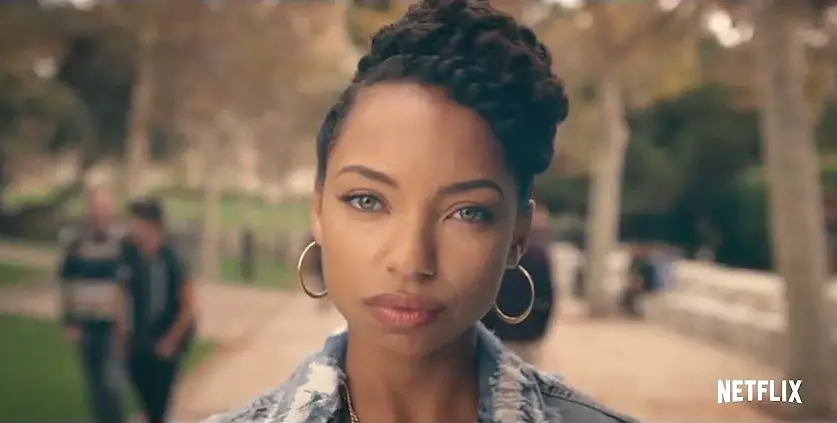
Further, what is meant to be a commentary on race relations seems to focus most heavily on the division amongst the black students rather than the inherent racism on campus. Throughout the story, black students sabotage each other because they can’t agree on a method of action. Why not write a show that demonstrates how African-American undergrads can proactively cooperate in the fight against inequality?
One critique I do not agree with is that “Dear White People” reveals the truth of “reverse racism.” Reverse racism is not a thing, and the show does not display bias against white people. In fact, the major white characters in the story are portrayed as the white-savior stereotype.
These examples of “benevolent” Caucasians include the sponsors who are threatening to shut things down if the black students they “allowed” to attend Winchester don’t calm their activism, and Sam’s boyfriend, Gabe, who is praised for accepting his white privilege and claiming “white people suck,” and is initiated into the otherwise all-black group, after which he transitions from savior to offender when he calls the police, putting Reggie at risk. These aren’t racist portrayals, nor are they unrealistic. They demonstrate the real intolerance for black activism in our country, as well as how ignorance can be the most subtle and harmful privilege of all.
All these aspects of the show lead me to conclude that “Dear White People” is a poorly executed and, sadly, dated social commentary on black lives in America that isn’t relatable to the majority of black people. It offers emotionally charged scenarios that provoke the characters to act and the audience to react, but neglects any exploration of resolutions.
Ultimately, the show fulfilled its provocative purpose by initiating social-media uproar (perhaps merely due to its title), but fails to guide the viewer through discussion of ways to improve the racial tensions that inherently caused the uproar. But, maybe that wasn’t the point. Maybe the show was targeting the very people that were upset about its title, which is okay. Perhaps the point of the show is to represent minorities in media, period. If that’s the case, my critiques still stand, but I see what the writers were trying to do. They accomplished at least that much. I think the premise of the show is valuable, but the execution less successful.


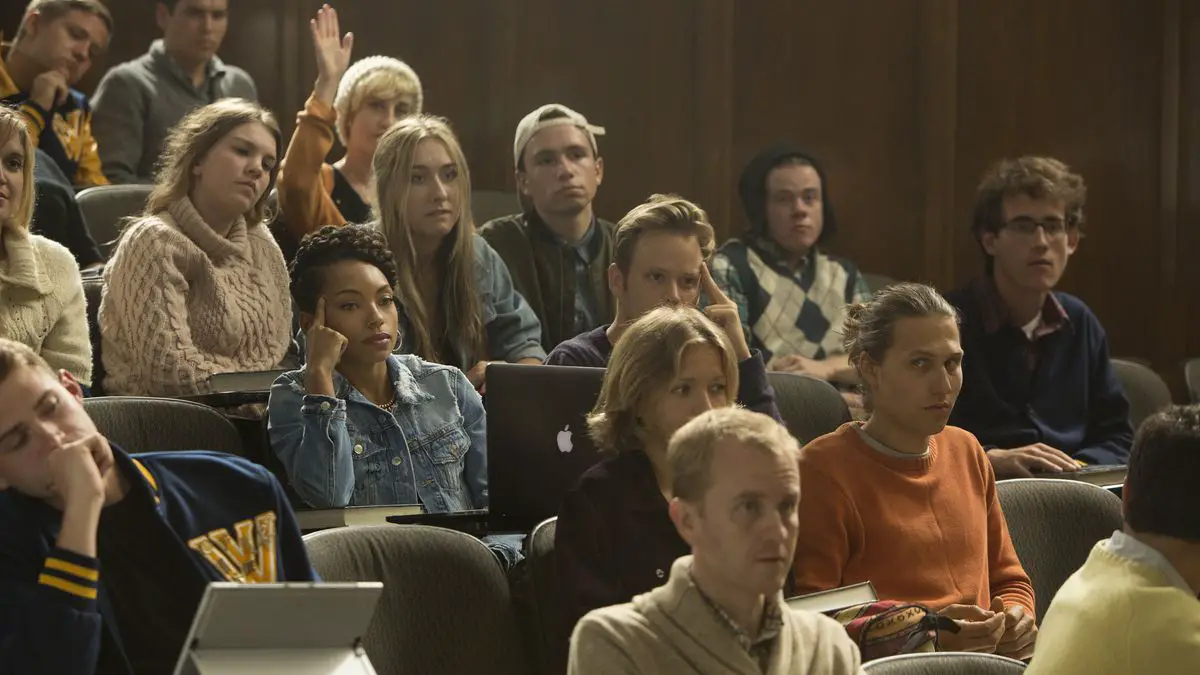















Sierra,
I know what you mean when you say people who want to learn about and improve race relations will bring themselves to the table. I myself am a white college grad who spends a fair amount of time reading up on race and gender issues. I’m sure you’ve come up against plenty of people who don’t even want to hear what you have to say, much less consider the content of your message. So I can see how once a message has called more open-minded people to action, it feels like that’s the best you can do.
But I also reject the notion that you can’t expect people to change. You never know what events in someone’s life may bring them into the glaring light of the truth, face-to-face with the person they’ve sworn they’ll never understand, in a position where they must listen. Work, school, adoption, marriage, mundane and extraordinary things happen every day to bring different people together. Talking about these issues may not provide the silver bullet we wish it would, but you never know who might suddenly find your message has become relevant. If these discussions remain confined to university classrooms and back-of-the-internet forums, rather than continuing to push into the mainstream, they won’t even fall on receptive ears, much less hard-of-hearing ones.